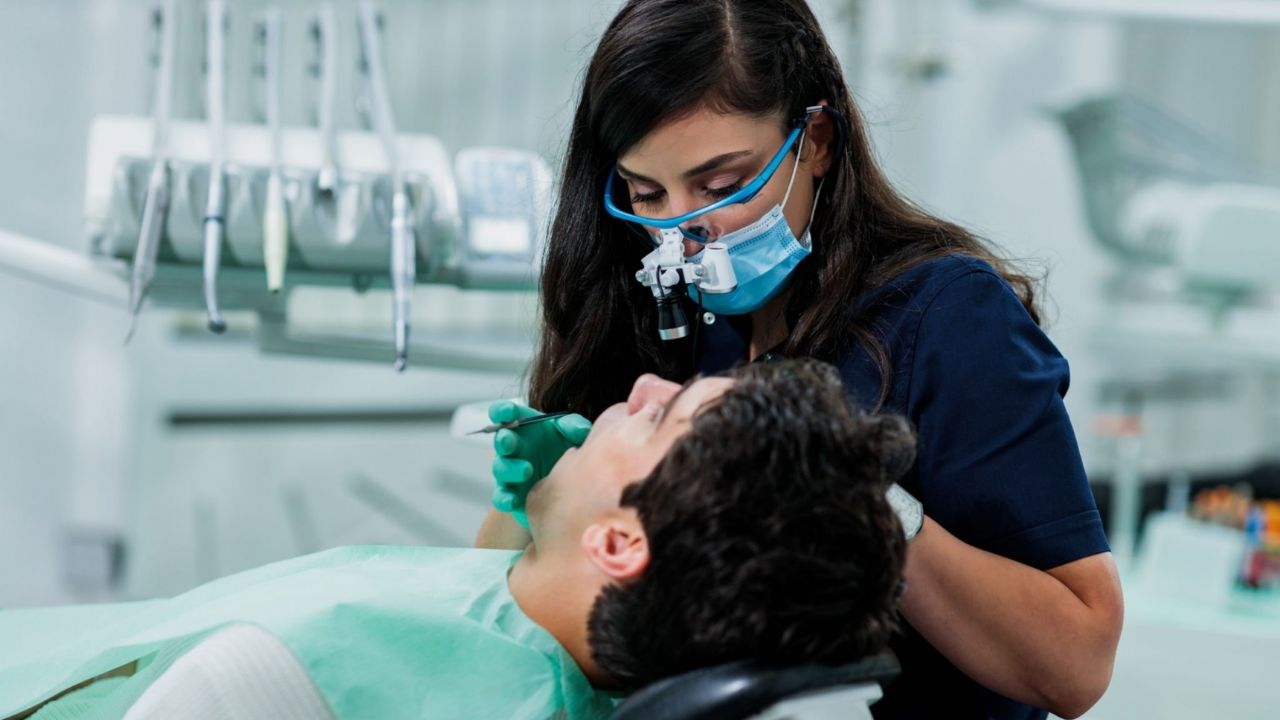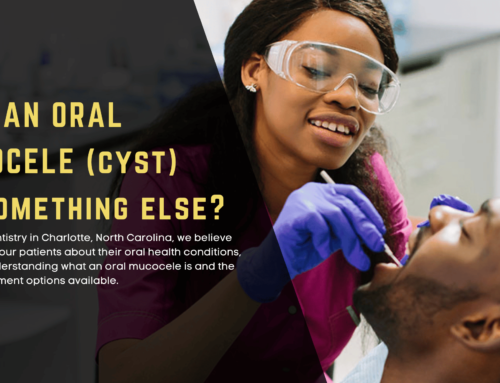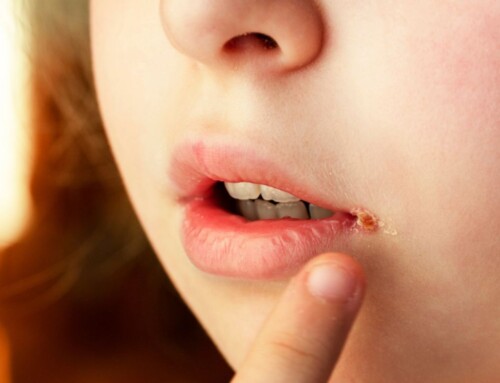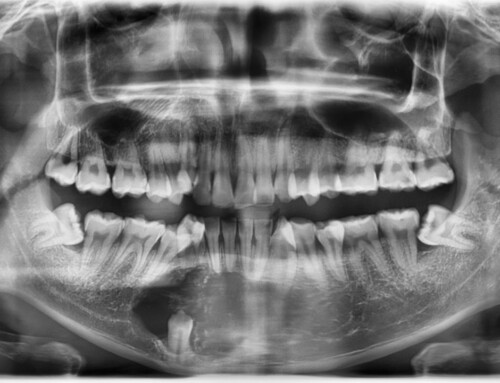What is Oral Mucocele?
Oral mucocele is a condition that occurs when the salivary glands in the mouth become blocked, resulting in a sac-like swelling filled with mucus. It most commonly appears on the lips, inside of the cheeks, and the bottom surface of the tongue.
It can vary in size, from pea-sized to several centimeters across. While oral mucoceles are not dangerous, they can be cosmetically unattractive and uncomfortable.
How does Oral Mucocele Look?
Oral mucocele appears as a clear or bluish cyst which may be soft and filled with fluid, similar to a blister. It can also appear like a small sac (cyst) or bump. They are usually painless but may cause discomfort if they grow large enough to rub against the cheek or tongue.
Oral Mucocele Symptoms
Oral mucoceles typically present as a smooth, firm lump with a bluish or purplish hue. It may appear suddenly or gradually grow over time. Other common symptoms include:
- Swelling and tenderness in the affected area
- A feeling of fullness or a “loose tooth” sensation
- Difficulty opening the mouth
- Painful blistering on the surface of the mucocele
What are the Causes of Mucoceles?
Cysts known as mucoceles typically arise near or at an opening of a salivary gland, also known as a salivary duct.
These cysts are often the result of some form of oral trauma, such as biting or sucking on the lips, chewing the cheek, repeated contact with a sharp tooth, or persistent tongue thrusting against the teeth.
This trauma can cause a duct to rupture, allowing saliva to spill into the surrounding connective tissue, resulting in inflammation and swelling.
How is Oral Mucocele Treated?
Our dentist, Dr. K, can identify an oral mucocele by visually examining it. However, if there is any doubt, he may conduct an ultrasound or biopsy to make a definitive diagnosis. Most of the time, no treatment is necessary as the cyst will naturally rupture on its own after three to six weeks.
In instances where the mucocele is persistent or large, your dentist may remove it using cryotherapy, laser treatment, or oral mucocele surgery. Avoid attempting to remove or burst the cyst yourself. To prevent a recurrence, your dentist may also recommend removing the damaged or obstructed salivary gland. Your dentist will schedule regular follow-up appointments to keep an eye on the area.
How Long can Mucocele Last?
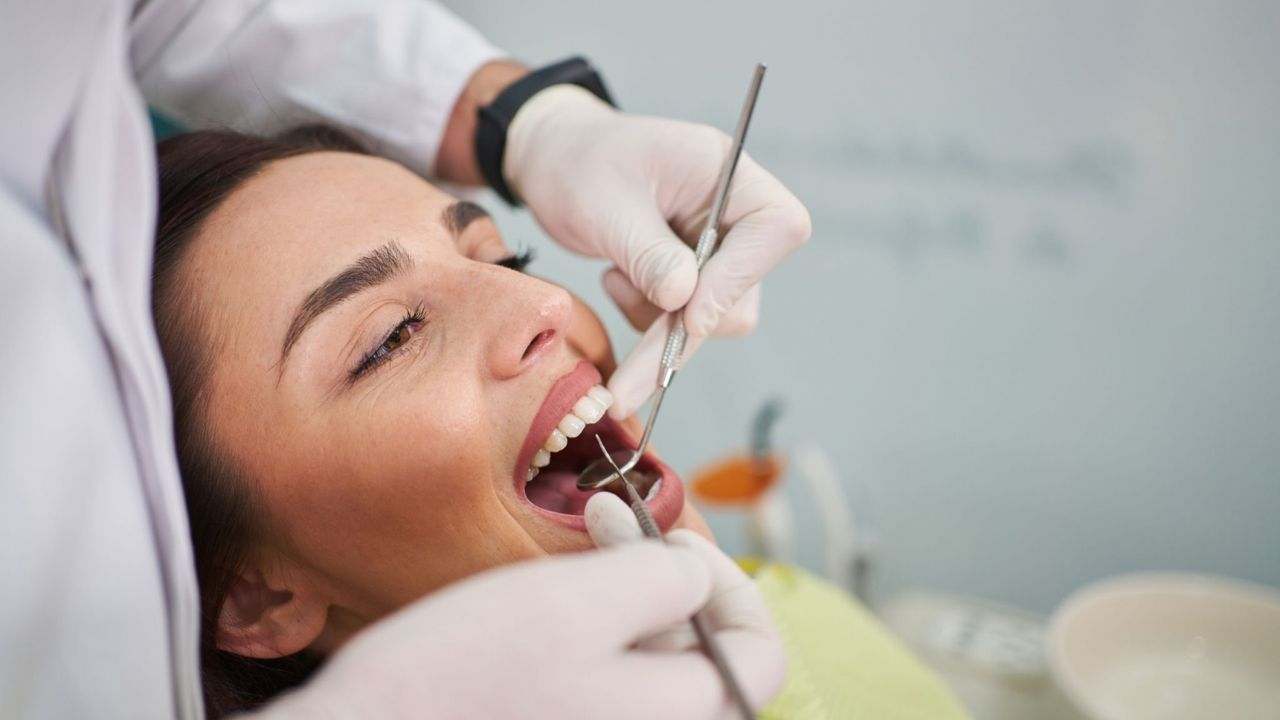
The duration of an oral mucocele can vary depending on the underlying cause. In most cases, it will resolve itself within three to six weeks. If your mucocele does not go away or grows larger, contact Dr. K immediately for evaluation and treatment options.
Can I Pop an Oral Mucocele?
No, you should not attempt to pop or cut open a mucocele by yourself. It is important to seek professional help from our dentist, Dr. K, as the cyst could become infected if it is not treated properly. Trying to remove the mucocele on your own can also cause more harm than good and may even spread the infection to other parts of the mouth.
Can I Prevent Mucoceles?
Yes! You can help reduce your risk by avoiding activities that may cause oral trauma or irritation, such as lip biting, tongue thrusting, and vigorous teeth brushing. Additionally, practice good oral hygiene and visit our dentist for regular checkups. This will help ensure that any potential issues, such as mucoceles, are diagnosed and treated immediately.
District Dentistry – Dentist in Charlotte, NC
If you are experiencing any signs or symptoms of an oral mucocele, contact our office to schedule an appointment with Dr. K for an evaluation. Our team is here to provide the quality care and treatment you need to restore your oral health.
At District Dentistry, we are dedicated to providing excellent dental care and helping our patients maintain healthy smiles. If you have any questions or want to schedule an appointment with Dr. K, contact us at 704-508-9814. We look forward to hearing from you!



